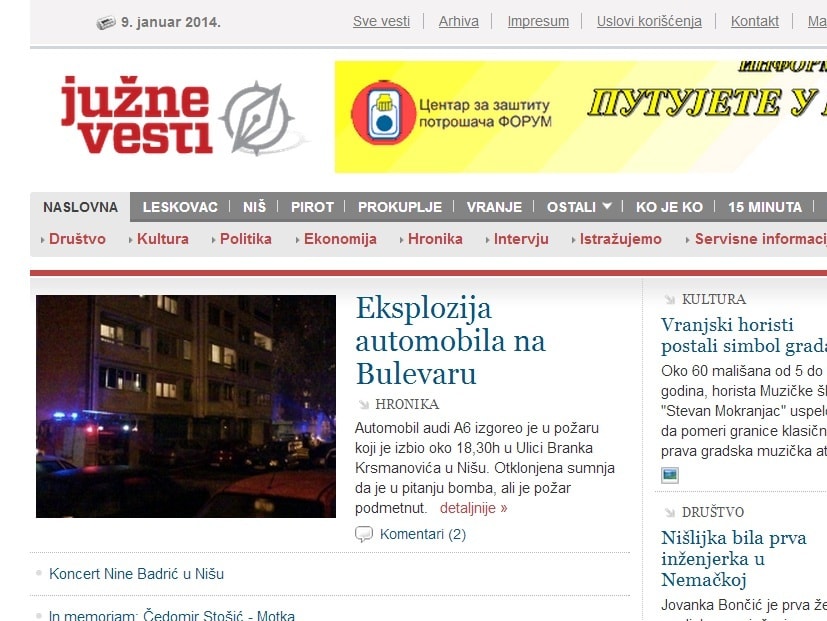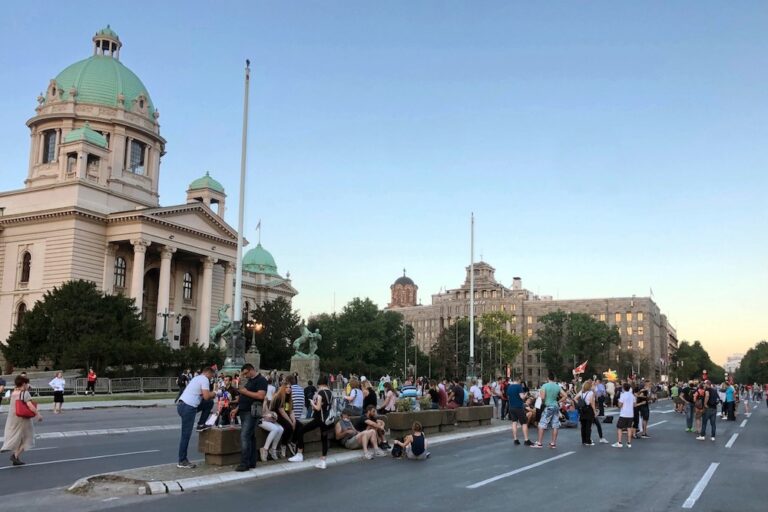The Deputy Mayor of Nis, Ljubivoje Slavkovic, posted a series of insults on Facebook against the news portal Juzne Vesti and offered a reward for information about the website's cost. This occurred after Juzne Vesti had criticised Slavkovic for making homophobic remarks.
Please note that the following statement has been extracted from the “Freedom of Expression” section of ANEM’s Fiftieth Monitoring Report. Click here to read the full report.
The Deputy Mayor of Nis, Ljubivoje Slavkovic, posted a series of insults on Facebook against the news portal Juzne Vesti and offered a reward for information about “the cost of the maintenance of the Juzne Vesti portal and who’s really behind them, who’s financing them…” Slavkovic’s reaction followed a series of texts by Juzne Vesti in relation to his statement that the LGBT population is a “self-genocidal crowd” and that they are suffering from a “serious psychological and physiological disorder”.
The Commissioner [has] guaranteed freedom of speech must not be an excuse for communicating ideas and views constituting hate speech, smearing, humiliation and injury to the dignity of persons based on their sexual orientation.
One of the main postulates of contemporary media law, confirmed by the case law of the European Court of Human Rights (ECHR), as well as the Serbian Law on Public Information, is that public figures, especially holders of state and political office, must show a greater degree of tolerance for criticism by the media; their privacy rights shall even be limited, if the information in a concrete case is of public interest (especially for politicians, as persons occupying public office).
In one of our previous reports, we analyzed the case of a media outlet director and editor who criticized a politician spending his holidays in Dubai. Shortly after the text was released, the director and the editor were accused by the said politician of pedophilia – leaflets with these accusations (warning parents not to leave their children in their vicinity, since they are pedophiles) were distributed near the offices of their newspaper.
The case in Nis is yet another “creative response” by Serbian politicians to media criticism, an apparently growing practice. Ljubivoje Slavkovic, the Deputy Mayor of Nis, is undoubtedly a public official and holder of public office in the local-self government of that city. He has undoubtedly made a statement offending the dignity of a minority group based on their sexual orientation.
These facts were confirmed by the statement made by the Commissioner for the Protection of Equality. By making the aforementioned controversial statements, Slavkovic wittingly placed himself at the core of the heated debate about the rights of minority groups in Serbia and the rights of sexual minorities.
He was hence expected to demonstrate a higher degree of tolerance for critical reporting about his statement. His response, in the form of promising a reward for information about the finances of a media outlet that criticized him and “who’s really pulling the strings behind them”, may not be interpreted as a legitimate request for transparency of media ownership and influence on the media. On the contrary, it constitutes forbidden influence (as provided for in the Law on Public Information) on a public media and its personnel, which may obstruct their work and restrict the free flow of ideas, information and opinions.



